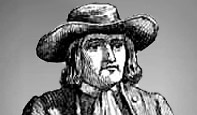One must remember that this debate about the dual nature of Christ as God and man obsessed the Church in the first centuries of its life, and was only laid to rest at the Council of Nicea. The debate had been punctuated by unscrupulous manoeuvring and physical violence; all of which may have had its comic side, but was hardly the way to solve a weighty theological problem. The farce to which it degenerated was aptly summed up by an Oxford don in the question, “When the historical Jesus was dying in agony on the cross, was the Universal Christ arranging an eclipse of the sun, so that Nature could pay homage to his own demise?” Nor does the Nicean Creed resolve anything. Constantine called the Council, but a divided Church was no use to him; so he demanded unanimity on this issue. The worthy fathers did their best; the Creed simply states that Christ was God and man, and wisely leaves it there. Nothing is resolved; it was a political fudge, and remains so to this day; though time and tradition have turned it into a hallowed political fudge.
Human nature may not change; but the social conditions are as different as can be imagined from what they were in Christ’s day. So what Jesus said about the relationship of God to man may be timeless; but even if at the time of his Ministry he had had all knowledge, it would be surprising if he had given much useful advice on how to cope with the problems of everyday life today. We all describe the Lord’s Prayer as the way he taught us to pray; but he did not actually dictate it in English. It would have been difficult, because English did not exist at that time. No doubt English is infinitely richer than Aramaic; but Jesus had to be content with the linguistic poverty of Aramaic. Similarly with the social conditions and discipline of thought round about him. He had no alternative but to use them, however much they cramped his style.
Is it possible to have thoughts which cannot be expressed in the limited vocabulary available? I think it is. Every advocate knows that his words express his submissions or thoughts. They express what he is trying to say. Even with the interpretation of an Act of Parliament, the words are not deemed to be the reality, because one seeks the intention of the draftsman or of parliament which lies behind the words. Perhaps with “Guilty” or “Not Guilty”, or with the General’s Orders to his Troops which have to be obeyed, words become reality; but generally words are mere ciphers to convey ideas. Nor do I agree with Wittgenstein who preached that thoughts were pictures in the mind. Thoughts are like dark shapes or moods in the spiritual world, which can be expressed inadequately in words, or music, or art, or action. And it is widely recognised that there is always a gulf between the imagination and expression; so that thoughts are not in the expression itself, but are portrayed by the expression.
Is it credible that Jesus, who had a difficult task doing the will of God particularly towards the end, should have burdened himself with All-knowledge, that is assuming that he had access to it. Knowledge that is to say, which might have been useful to him in past centuries, and knowledge which might be useful again thousands of years in the future? Or was his knowledge mercifully limited to what was useful in his own day and age? Is it to be supposed he had a working knowledge of physics and astronomy, even though he talked about the stars falling in the Day of Judgement? The stars may fall in the Day of Judgement, but in astronomical space there is no up, or down. We in England are not standing the right way up; nor are people in New Zealand standing upside down. Such evidence as we have suggests Jesus had no conception the earth was a sphere, and had never heard of Aristarchus’s hypothesis that the earth revolved and went round the sun, despite its having been made 260 years before his time.
